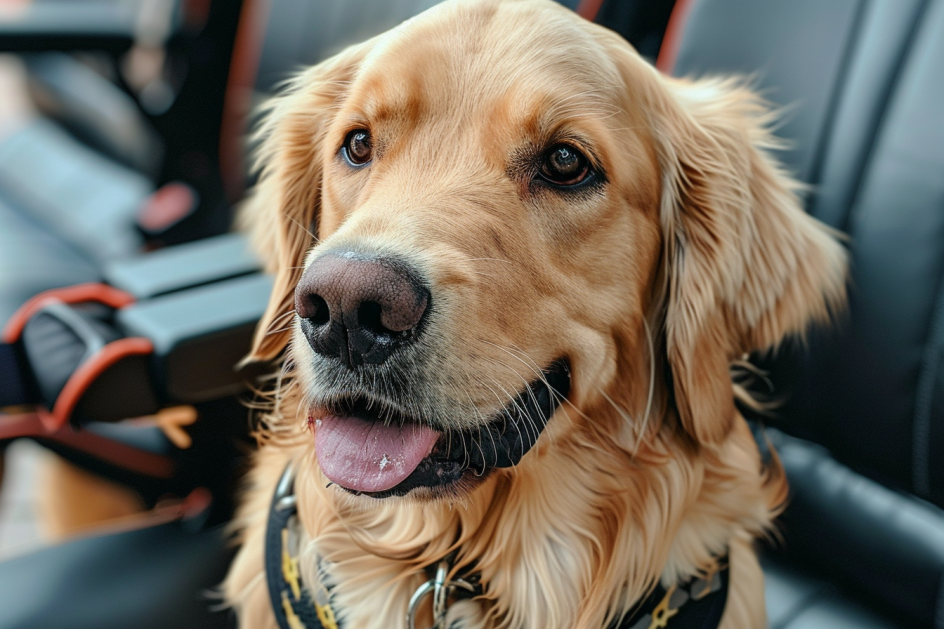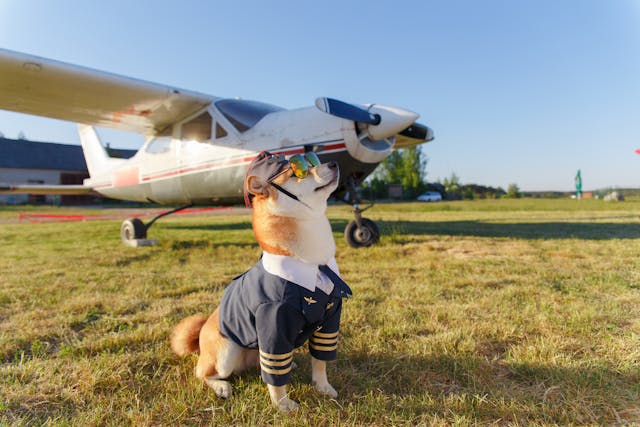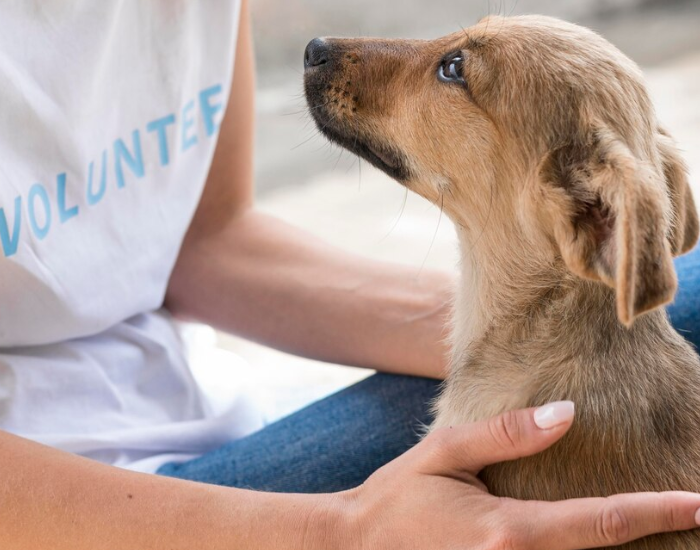Assistance dogs are highly trained animals that are specifically bred and trained to provide support and assistance to people with disabilities. They can help people with physical disabilities, sensory impairments, and mental health conditions to live more independently and access public spaces and services. In the UK, there are several organizations that train and provide assistance dogs, including Assistance Dogs (UK), Guide Dogs, and Hearing Dogs for Deaf People. In this blog post, we will explore the qualifications and training required for assistance dogs in the UK.
Qualifications for Assistance Dogs in the UK
In order to be qualified as an assistance dog in the UK, a dog must meet certain criteria. Firstly, the dog must be healthy and have a good temperament. They must also be able to perform specific tasks that are required to assist their owner with their disability. The dog must be able to work calmly and reliably in different environments, including busy public spaces.
In addition to these basic qualifications, assistance dogs must also meet specific standards of behavior and obedience. This is essential to ensure that the dog can work safely and effectively in different situations. Assistance dogs must be able to remain calm and focused even in stressful or distracting situations, and must be able to respond quickly and appropriately to their owner's needs.
Assistance dogs must also be trained to follow a specific set of commands and cues, which are used to signal different tasks and actions. These commands and cues must be clear and consistent, and the dog must be able to respond reliably to them in different situations.
Training for Assistance Dogs in the UK
The training process for assistance dogs in the UK is rigorous and can take up to two years to complete. The process involves several stages, including breeding, puppy socialization, basic training, and advanced training.
Breeding
Assistance dogs are typically bred by specialized organizations that focus on producing dogs with the right temperament and traits for assistance work. Breeding programs are carefully managed to ensure that the dogs are healthy and have a good temperament. The breeding process can take several years, as the dogs must be carefully selected and bred to produce puppies with the desired traits.
Puppy Socialization
After the puppies are born, they are typically placed with volunteer puppy socializers who are responsible for socializing them and exposing them to different environments and situations. This is a critical stage in the training process, as it helps to develop the dog's confidence, social skills, and ability to adapt to new situations.
Basic Training
After the socialization stage, the dogs are typically placed with professional trainers who begin their basic training. This involves teaching the dog basic obedience commands such as sit, stay, and come, as well as how to walk on a leash and interact with other dogs and people.
Advanced Training
Once the dog has completed its basic training, it will undergo advanced training to learn specific tasks and skills related to its owner's disability. For example, a guide dog will be trained to navigate obstacles and lead its owner safely through different environments, while a hearing dog will be trained to alert its owner to different sounds and signals.
During the advanced training stage, the dog will be exposed to different environments and situations to ensure that it can work calmly and reliably in different settings. The dog will also be trained to respond to specific commands and cues related to its owner's disability.
Public Access Test
Before an assistance dog can be qualified for public access, it must undergo a public access test to assess its behavior and obedience in public spaces. The test is designed to ensure that the dog is well-behaved, calm, and able to work safely and effectively in different environments. The test also ensures that the dog is able to respond to basic commands and cues when in public settings.
Once a dog passes the public access test, it can be designated as an assistance dog, allowing its handler full access to public places and services. Assistance dogs are allowed on airplanes, buses, trains, restaurants and any other public spaces that pets
Training Organizations
Assistance Dogs (UK)
Assistance Dogs UK is a coalition of assistance dog charities providing information to prospective and current assistance dog owners and service providers. Assistance Dogs (UK) is a coalition of several organizations, including Guide Dogs, Hearing Dogs for Deaf People, Canine Partners, Dogs for Good, and Medical Detection Dogs. These organizations work together to promote the use of assistance dogs in the UK
ADUK does not claim to represent all assistance dog charities or owners. Not all assistance dogs In the UK will have been trained by an ADUK member.
Guide Dogs
The primary objective of Guide Dogs UK is to provide mobility and independence to people with visual impairments. The organization does this by training and providing guide dogs to people who need them. Guide dogs are trained to lead their owners safely and confidently through different environments, including busy streets, public transport, and other public spaces.
Hearing Dogs for Deaf People
Hearing Dogs for Deaf People is a charity which trains and provides hearing dogs to people with hearing loss. The organization works closely with owners to find the right dog for them, as well as providing ongoing training and care. Hearing Dogs are trained to alert their owners to important sounds, like doorbells, alarm clocks, telephones and even smoke alarms. The charity also provides emotional support, enabling their owners to regain independence, confidence and emotional wellbeing.
Service Dog Training School International
Service Dog Training School International (SDTSI) is an organization that provides a variety of training programs tailored to the specific needs of its clients. The organization's comprehensive training programs and positive reinforcement techniques help to create strong bonds between service dogs and their handlers, ensuring that they can work together effectively to improve the lives of people with disabilities.
Legal Protections for Assistance Dogs
I. Equality Act 2010
The Equality Act 2010 provides legal protection for assistance dogs and their owners. The Act makes it unlawful to discriminate against a disabled person because they have an assistance dog that is trained to do certain tasks.
II. Disabled Persons Act 1989
The Disabled Persons Act 1989 also provides protection for disabled people and their service dogs in the UK. The Act states that public transport providers must make reasonable adjustments to allow an assistance dog to accompany its owner, as long as it is under control. Furthermore, this legislation prohibits individuals from denying access or services to those with disabilities and their assistance dogs unless there is a risk of contamination or harm to other passengers. It also requires service providers and business owners to make reasonable adjustments in order to accommodate people with disabilities and their dogs, such as providing additional space for them on public transport or offering alternative services. Ultimately, this law provides greater access to services for disabled people and their assistance dogs, whilst still enabling service providers to protect the safety of other passengers or customers.
This law is a major step forward in protecting the rights and welfare of disabled people and their assistance dogs. It helps ensure that disabled people are not discriminated against because they require an assistance dog and it allows them greater access to public transport, services and premises which may have previously been off
III. Criminal Damage Act 1971
The Criminal Damage Act 1971 makes it an offence to cause malicious damage or destruction of property, including assistance dogs. This law is an important tool for deterring people from causing harm to assistance dogs and other animals, as well as protecting the owners from prosecution if their dog suffers any damage caused by another person.
This act also helps ensure that the owners of assistance dogs are not discriminated against because of their disability, and that their rights are upheld. Furthermore, it ensures that any damage or destruction of an animal is taken seriously by law enforcement, as it can be seen as a serious offence punishable by fines and/or imprisonment.
Conclusion
In conclusion, assistance dogs play a crucial role in supporting people with disabilities in the UK. To ensure that these dogs are well-trained and able to perform their tasks effectively, there are various qualifications and training requirements that must be met.
Training for assistance dogs involves rigorous and extensive programs that cover obedience, task training, and public access training. These programs are tailored to the specific needs of the dogs and their handlers and are based on positive reinforcement techniques.
In addition to training, there are also various qualifications and certifications that must be obtained by assistance dog trainers and organizations. These qualifications and certifications ensure that trainers have the necessary skills and knowledge to train assistance dogs effectively, and that the dogs are well-behaved and able to work safely in public spaces.













